-
 Bitcoin
Bitcoin $88,629.0112
1.53% -
 Ethereum
Ethereum $1,633.3416
0.24% -
 Tether USDt
Tether USDt $1.0000
0.01% -
 XRP
XRP $2.0979
-1.08% -
 BNB
BNB $605.5535
0.62% -
 Solana
Solana $140.2764
0.66% -
 USDC
USDC $1.0000
0.01% -
 Dogecoin
Dogecoin $0.1643
1.41% -
 TRON
TRON $0.2438
0.47% -
 Cardano
Cardano $0.6391
-0.43% -
 Chainlink
Chainlink $13.4401
-0.21% -
 Avalanche
Avalanche $20.3874
-0.96% -
 UNUS SED LEO
UNUS SED LEO $8.8373
-2.11% -
 Stellar
Stellar $0.2496
-3.26% -
 Sui
Sui $2.3313
3.08% -
 Shiba Inu
Shiba Inu $0.0...01260
-0.18% -
 Hedera
Hedera $0.1732
1.55% -
 Toncoin
Toncoin $2.9117
-3.34% -
 Bitcoin Cash
Bitcoin Cash $346.5808
1.81% -
 Hyperliquid
Hyperliquid $18.4964
3.15% -
 Litecoin
Litecoin $79.8162
-0.77% -
 Polkadot
Polkadot $3.7801
-3.27% -
 Dai
Dai $1.0000
0.00% -
 Bitget Token
Bitget Token $4.4558
-0.32% -
 Ethena USDe
Ethena USDe $0.9992
0.01% -
 Pi
Pi $0.6369
0.62% -
 Monero
Monero $217.7312
1.28% -
 Pepe
Pepe $0.0...08147
2.99% -
 Uniswap
Uniswap $5.4346
0.09% -
 Aptos
Aptos $4.9660
-4.00%
What role does the SEC play in cryptocurrency ETF approval?
The SEC's key role in approving cryptocurrency ETFs involves ensuring investor protection, maintaining market integrity, and evaluating factors such as underlying asset liquidity, custody security, and prevention of market manipulation.
Feb 19, 2025 at 09:18 pm
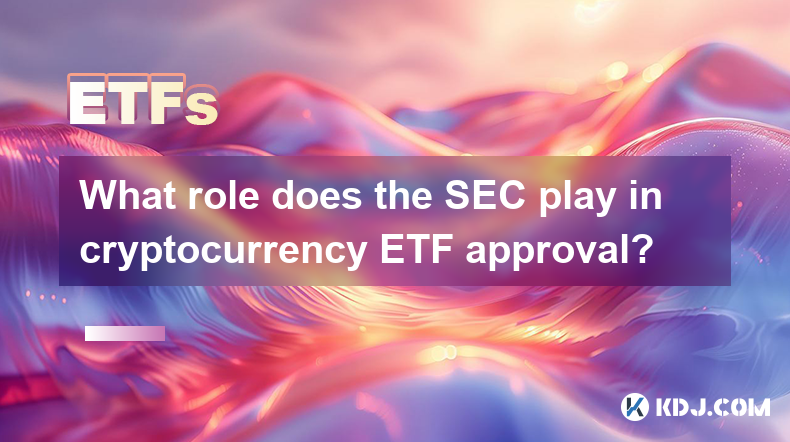
Key Points:
- Understanding the SEC's Role in Cryptocurrency ETF Approval
- SEC's Historical Approach to Cryptocurrency ETFs
- Key Considerations for SEC Approval
- Potential Timeline for Cryptocurrency ETF Approval
- FAQs Related to SEC and Cryptocurrency ETF Approval
Understanding the SEC's Role in Cryptocurrency ETF Approval
The Securities and Exchange Commission (SEC) is the primary regulatory body governing the securities industry in the United States. As such, it plays a critical role in the approval process for cryptocurrency exchange-traded funds (ETFs). The SEC's mandate is to protect investors, maintain fair and orderly markets, and facilitate capital formation.
In the context of cryptocurrency ETFs, the SEC's responsibilities include:
- Reviewing and approving ETF proposals
- Ensuring that ETFs meet regulatory requirements
- Protecting investors from fraud and manipulation
- Monitoring ETF trading and performance
SEC's Historical Approach to Cryptocurrency ETFs
The SEC has historically taken a cautious approach to approving cryptocurrency ETFs, citing concerns over the volatility and speculative nature of the underlying assets. As a result, no cryptocurrency ETFs have been approved in the United States to date.
However, the SEC has recently signaled a greater openness to considering cryptocurrency ETF proposals. This shift is attributed to the growing maturity of the cryptocurrency market and the increasing institutional interest in digital assets.
Key Considerations for SEC Approval
The SEC considers several key factors when evaluating cryptocurrency ETF proposals:
- Underlying Assets: The SEC will assess the underlying assets of the ETF to ensure they are sufficiently liquid, transparent, and regulated.
- Custody and Security: The ETF sponsor must demonstrate robust custody and security arrangements for the underlying assets.
- Market Manipulation: The SEC will review measures to prevent market manipulation and ensure fair and orderly trading.
- Investor Disclosure: The ETF prospectus must provide clear and comprehensive disclosures to investors about the risks and potential rewards of the investment.
- Sponsor Compliance: The ETF sponsor must demonstrate a history of compliance with regulatory requirements.
Potential Timeline for Cryptocurrency ETF Approval
The SEC's approval process for cryptocurrency ETFs can be lengthy and complex. The following is a potential timeline outlining the key steps:
- Proposal Submission: ETF sponsors submit proposals to the SEC for review.
- Review and Comment Period: The SEC reviews the proposal and provides comments or requests additional information from the sponsor.
- Revision and Resubmission: The sponsor revises the proposal based on the SEC's feedback and resubmits it for approval.
- Public Comment Period: The SEC publishes the proposal for public comment and considers feedback from interested parties.
- Approval or Denial: The SEC makes a final decision on whether to approve or deny the ETF proposal.
FAQs Related to SEC and Cryptocurrency ETF Approval
Q: Why has the SEC not approved any cryptocurrency ETFs to date?
A: The SEC has cited concerns over the volatility and speculative nature of the underlying assets, as well as the need to ensure adequate custody, security, and investor protection measures.
Q: What is the SEC's current stance on cryptocurrency ETFs?
A: The SEC has signaled a greater openness to considering cryptocurrency ETF proposals, recognizing the growing maturity of the market and institutional interest in digital assets.
Q: What factors does the SEC consider when evaluating cryptocurrency ETF proposals?
A: The SEC assesses the underlying assets, custody and security arrangements, market manipulation prevention measures, investor disclosure, and the sponsor's compliance history.
Q: What is the potential timeline for SEC approval of a cryptocurrency ETF?
A: The approval process can be lengthy and complex, involving proposal submission, review, comment periods, and final decision-making, typically spanning several months to years.
Q: What are the potential benefits of cryptocurrency ETFs?
A: Cryptocurrency ETFs could provide investors with greater accessibility to digital assets, improve liquidity, and potentially reduce volatility in the cryptocurrency market.
Disclaimer:info@kdj.com
The information provided is not trading advice. kdj.com does not assume any responsibility for any investments made based on the information provided in this article. Cryptocurrencies are highly volatile and it is highly recommended that you invest with caution after thorough research!
If you believe that the content used on this website infringes your copyright, please contact us immediately (info@kdj.com) and we will delete it promptly.
- The Reserve Rights (RSR) Token Recently Enjoyed a Noticeable RSR Price Surge Greater Than 13%
- 2025-04-22 19:50:11
- Dogecoin (DOGE) Price Forecast: Bulls Anticipate Major Breakout After Recent Dip
- 2025-04-22 19:50:11
- Bitcoin (BTC) price is showcasing its growing maturity as a global asset, becoming “less Nasdaq — more gold”
- 2025-04-22 19:45:12
- Pi Network Price Prediction: Can $5 Be Achieved?
- 2025-04-22 19:45:12
- Bitcoin (BTC) price climbed to its highest level since early March, trading above $88,800
- 2025-04-22 19:40:12
- MicroStrategy's Latest Bitcoin Purchase Pushes BTC Holders to New Highs
- 2025-04-22 19:40:12
Related knowledge
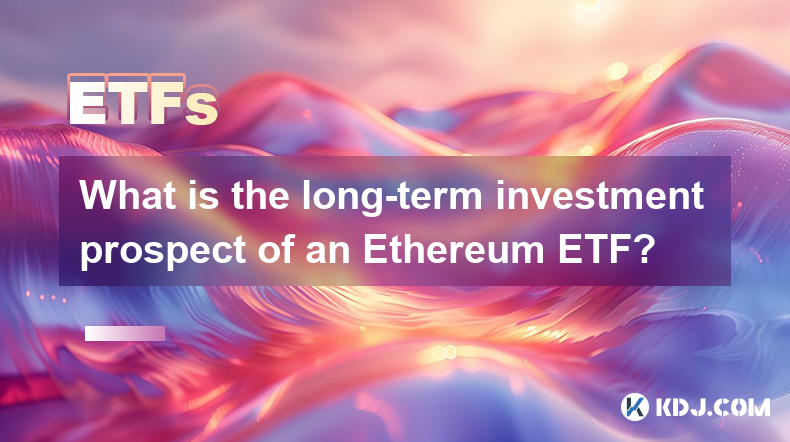
What is the long-term investment prospect of an Ethereum ETF?
Mar 18,2025 at 03:01pm
Key Points:Uncertainty surrounds the long-term prospects of an Ethereum ETF due to regulatory hurdles and market volatility.Approval hinges on regulatory clarity regarding cryptocurrencies, especially concerning investor protection and market manipulation.Successful ETF launches could boost Ethereum's price and adoption, but failure could negatively imp...
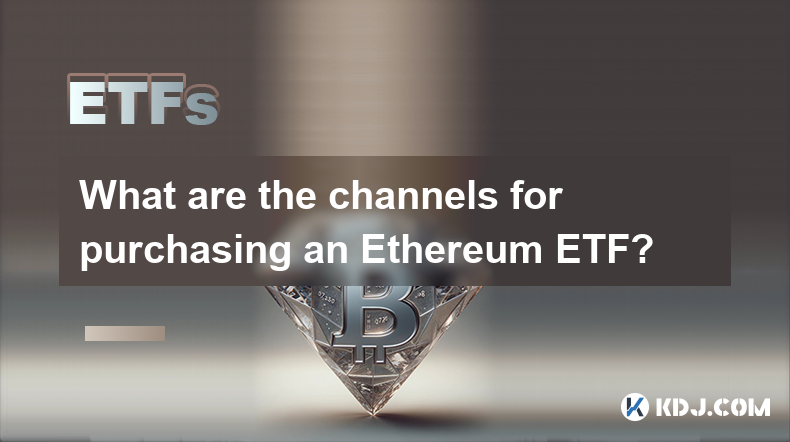
What are the channels for purchasing an Ethereum ETF?
Mar 18,2025 at 01:49am
Key Points:Currently, there are no Ethereum ETFs available for direct purchase by the general public in most major markets.Access to Ethereum exposure through ETFs is limited, mainly through futures-based ETFs.Purchasing Ethereum directly or through other investment vehicles remains a viable alternative.Regulatory hurdles and market complexities signifi...
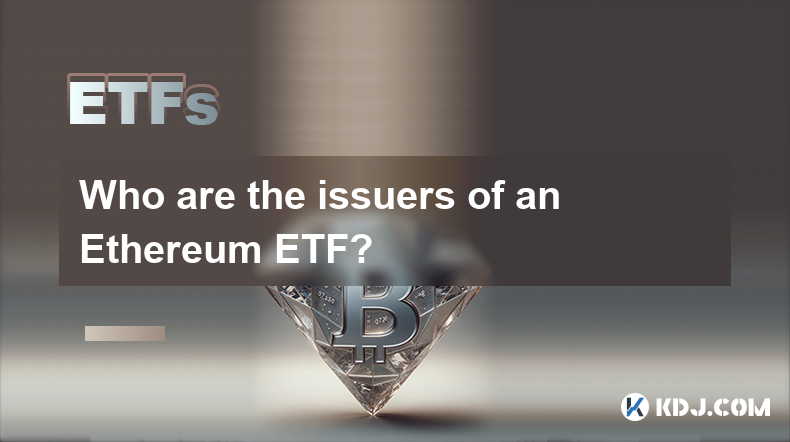
Who are the issuers of an Ethereum ETF?
Mar 19,2025 at 08:07pm
Key Points:There are no currently approved Ethereum ETFs in the US, meaning no single issuer can be definitively named. However, several firms have filed applications.The issuers of potential Ethereum ETFs will be large, established financial institutions, typically asset management companies.The specific requirements for ETF issuers are stringent and o...
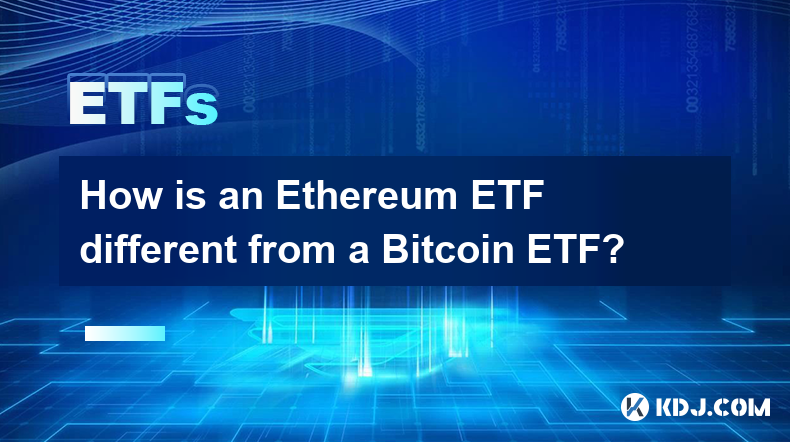
How is an Ethereum ETF different from a Bitcoin ETF?
Mar 17,2025 at 10:55am
Key Points:Underlying Asset: The core difference lies in the underlying asset: an Ethereum ETF tracks the price of Ether (ETH), while a Bitcoin ETF tracks the price of Bitcoin (BTC).Technology and Use Cases: Ethereum's blockchain supports smart contracts and decentralized applications (dApps), creating a distinct technological and investment narrative c...
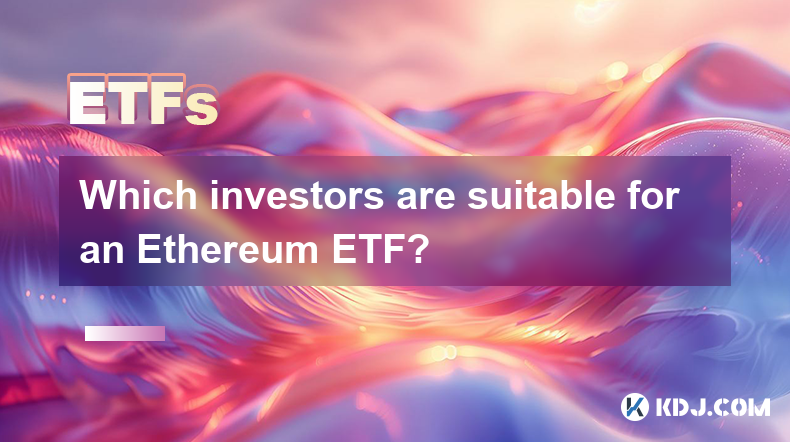
Which investors are suitable for an Ethereum ETF?
Mar 16,2025 at 05:50pm
Key Points:Risk Tolerance: Ethereum ETF investment requires a high risk tolerance due to the volatility of the cryptocurrency market.Investment Goals: Investors seeking long-term growth potential and exposure to the Ethereum ecosystem are suitable candidates.Investment Horizon: A longer-term investment horizon is crucial to weather market fluctuations.U...
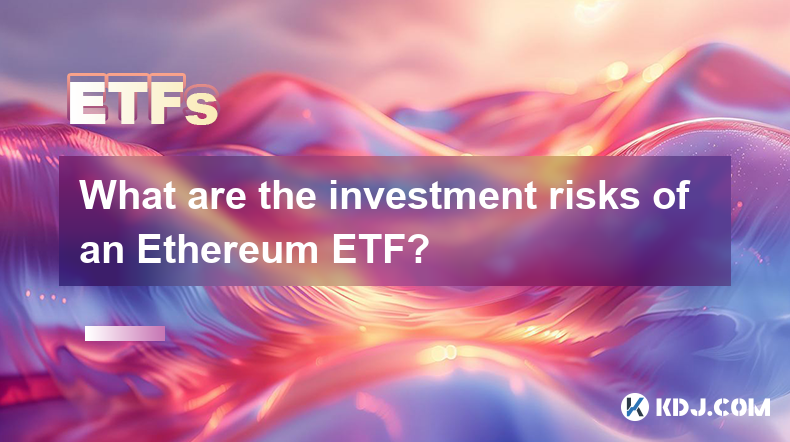
What are the investment risks of an Ethereum ETF?
Mar 18,2025 at 02:12am
Key Points:Price Volatility: Ethereum's price is highly volatile, impacting ETF share prices.Regulatory Uncertainty: Changes in regulatory landscapes can significantly affect ETF trading and performance.Market Manipulation: The potential for market manipulation, particularly in smaller ETFs, exists.Underlying Asset Risk: Risks associated with the Ethere...

What is the long-term investment prospect of an Ethereum ETF?
Mar 18,2025 at 03:01pm
Key Points:Uncertainty surrounds the long-term prospects of an Ethereum ETF due to regulatory hurdles and market volatility.Approval hinges on regulatory clarity regarding cryptocurrencies, especially concerning investor protection and market manipulation.Successful ETF launches could boost Ethereum's price and adoption, but failure could negatively imp...

What are the channels for purchasing an Ethereum ETF?
Mar 18,2025 at 01:49am
Key Points:Currently, there are no Ethereum ETFs available for direct purchase by the general public in most major markets.Access to Ethereum exposure through ETFs is limited, mainly through futures-based ETFs.Purchasing Ethereum directly or through other investment vehicles remains a viable alternative.Regulatory hurdles and market complexities signifi...

Who are the issuers of an Ethereum ETF?
Mar 19,2025 at 08:07pm
Key Points:There are no currently approved Ethereum ETFs in the US, meaning no single issuer can be definitively named. However, several firms have filed applications.The issuers of potential Ethereum ETFs will be large, established financial institutions, typically asset management companies.The specific requirements for ETF issuers are stringent and o...

How is an Ethereum ETF different from a Bitcoin ETF?
Mar 17,2025 at 10:55am
Key Points:Underlying Asset: The core difference lies in the underlying asset: an Ethereum ETF tracks the price of Ether (ETH), while a Bitcoin ETF tracks the price of Bitcoin (BTC).Technology and Use Cases: Ethereum's blockchain supports smart contracts and decentralized applications (dApps), creating a distinct technological and investment narrative c...

Which investors are suitable for an Ethereum ETF?
Mar 16,2025 at 05:50pm
Key Points:Risk Tolerance: Ethereum ETF investment requires a high risk tolerance due to the volatility of the cryptocurrency market.Investment Goals: Investors seeking long-term growth potential and exposure to the Ethereum ecosystem are suitable candidates.Investment Horizon: A longer-term investment horizon is crucial to weather market fluctuations.U...

What are the investment risks of an Ethereum ETF?
Mar 18,2025 at 02:12am
Key Points:Price Volatility: Ethereum's price is highly volatile, impacting ETF share prices.Regulatory Uncertainty: Changes in regulatory landscapes can significantly affect ETF trading and performance.Market Manipulation: The potential for market manipulation, particularly in smaller ETFs, exists.Underlying Asset Risk: Risks associated with the Ethere...
See all articles























































































